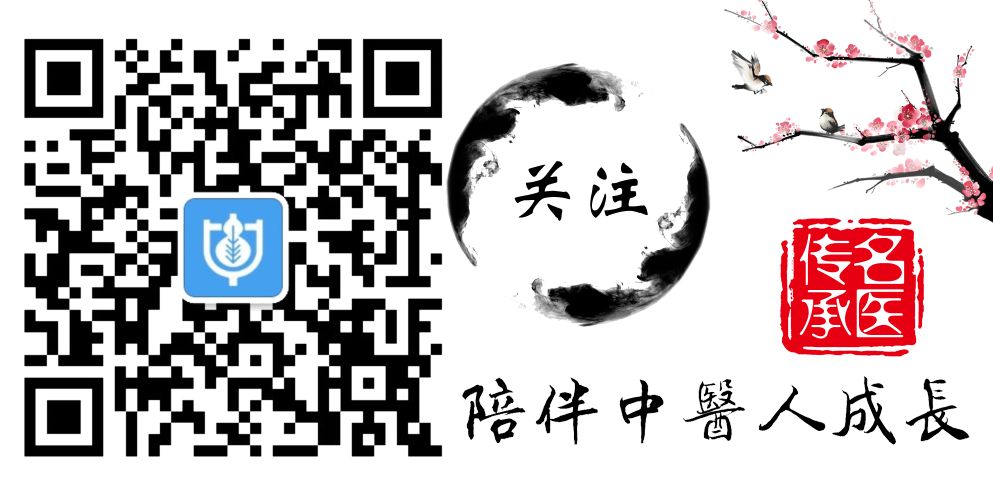Experience of Dr. Li Hanqing in Using Fuzi1. Rescuing Yang from ReversalFuzi (Aconite) is highly effective for the decline of Spleen and Kidney Yang, making it one of the best herbs for rescuing Yang from reversal in Traditional Chinese Medicine (TCM). It is often combined with Gan Jiang (Dried Ginger) and Gan Cao (Licorice) to treat symptoms such as cold extremities, diarrhea like water, or incontinence, with a faint pulse indicating imminent collapse. If the tongue coating is yellow or accompanied by bitter and dry mouth, indicating heat signs, it can be combined with cooling herbs, such as in the formula Fuzi Lizhong Tang (Aconite and Ginseng Decoction) with Huang Lian (Coptis) or pig bile. If there is profuse sweating, it indicates Qi collapse, and should be used with Ren Shen (Ginseng). Historical treatments for Yang collapse include Si Ni Tang (Frigid Extremities Decoction) and Shen Fu Tang (Ginseng and Aconite Decoction), with the main difference being the presence of sweating and diarrhea; if sweating is present, Ginseng must be used; if diarrhea is present, Dried Ginger must be included; if both sweating and diarrhea occur, both Ginseng and Dried Ginger should be used.2. Warming the Heart and KidneyThe Heart and Kidney have both Yin and Yang; when Yang is deficient, Yin is also insufficient. Therefore, when supplementing the Yang of the Heart or Kidney, it is essential to also include Yin-nourishing herbs. The Huangdi Neijing (Yellow Emperor’s Inner Canon) states: “When the vigorous fire energy declines, the lesser fire energy becomes strong; vigorous fire consumes Qi, while lesser fire generates Qi; vigorous fire disperses Qi, while lesser fire generates Qi.” Thus, when supplementing the Yang of the Heart and Kidney, it is necessary to combine with certain Yin-nourishing herbs (especially in chronic illnesses). The dosage of Fuzi is best kept small, generally between 5 to 15 grams, with a maximum of 30 grams; otherwise, it may easily transform lesser fire into vigorous fire, leading to adverse effects.3. Warming the Spleen and KidneyThe Spleen and Stomach belong to Earth, and when deficient and cold, they easily generate dampness. The Heart and Kidney belong to Fire, which can generate Earth. Therefore, Fuzi is often used for Spleen and Stomach deficiency with cold, such as in Fuzi Lizhong Tang. Due to the Spleen and Stomach’s tendency to generate dampness when deficient and cold, it is not necessary to combine with Yin-nourishing herbs as in cases of Heart and Kidney Yang deficiency. Fuzi Lizhong Tang is effective for symptoms like cold pain in the stomach and abdomen, or simultaneous pain in the stomach and chest, with cold extremities and a slow, thin pulse; if the pulse is weak and large, indicating Yang deficiency, Fuzi can both circulate and contain, warming the interior while restraining Yang, and using it in larger quantities can yield excellent results.4. Warming and Promoting UrinationFuzi itself does not have diuretic properties, but it is effective for edema due to Spleen and Kidney Yang deficiency or Heart and Kidney Yang deficiency. From the perspective of promoting Yang and urination, Fuzi is not as effective as Rou Gui (Cinnamon), but for edema due to Spleen and Kidney Yang deficiency, or Heart and Kidney Yang deficiency, Fuzi is superior to Rou Gui. For lower limb edema caused solely by Kidney deficiency, the combination of Fuzi and Rou Gui often enhances diuretic effects.It is common knowledge that diuretics are used for edema; however, in cases primarily due to Spleen deficiency, Qi deficiency, or Kidney deficiency, using diuretics alone not only fails to promote urination but can also damage the righteous Qi, making urination even more difficult. Therefore, for edema primarily due to deficiency, the focus must be on tonifying the deficiency, with diuresis as a supplementary measure.5. Dispelling Cold and Alleviating PainFuzi warms the Heart, Spleen, and Kidney, and can also enter the Liver, making it useful for treating cold excess patterns with tight pulses and flank pain, as seen in Da Huang Fuzi Tang (Rhubarb and Aconite Decoction). It is also used for cold pain in the stomach, umbilical pain, hernia pain, and cold-induced heart pain. However, since it primarily enters the Kidney, it is best used for hernia, stomach pain, and abdominal pain when there is also Kidney Yang deficiency; for purely Liver cold-induced hernia or abdominal pain, Xiao Hui Xiang (Fennel) or Wu Zhu Yu (Evodia) may be more effective, and for purely Spleen and Stomach cold deficiency, Dried Ginger is preferred.6. Dispelling Cold and Alleviating Bi SyndromeCold dampness invading the muscles and joints can cause numbness and pain. Although Fuzi is not as potent as Chuan Wu (Prepared Aconite) or Cao Wu (Bitter Aconite), it has lower toxicity than these and is more effective than many other herbs. Therefore, in formulas like Gui Zhi Fuzi Tang (Cinnamon and Aconite Decoction), Bai Zhu Fuzi Tang (Atractylodes and Aconite Decoction), and Gan Cao Fuzi Tang (Licorice and Aconite Decoction) from the Shang Han Lun (Treatise on Cold Damage), Fuzi is used to treat Bi syndrome. Based on experience, it is most effective for patients with a large, tight pulse or a slow, thin pulse, and cold extremities. Caution is advised for those with bitter mouth, yellow tongue coating, or yellow urine, as this may lead to toxicity; if the pulse is tight or slow and thin, and accompanied by bitter mouth and yellow tongue coating, it is essential to combine with certain cooling herbs, such as in the formula Gui Zhi Shao Yao Zhi Mu Tang (Cinnamon, Peony, and Anemarrhena Decoction) from the Jin Gui Yao Lue (Essential Prescriptions of the Golden Cabinet).Common Clinical Issues Encountered1. Dosage of Fuzi in Critical ConditionsTaking heart failure as an example, the pulse is thin and rapid, indicating both Yin and Yang are deficient, with Yang deficiency being predominant. If Fuzi is overused, it can harm Yin; a smaller dose of Fuzi combined with Bai Shao (White Peony) to nourish Yin and restrain is appropriate, aligning with the principle of “lesser fire generates Qi.” In cases of faint pulse, cold extremities, and diarrhea indicating Yang collapse, only a large dose of Fuzi can restore the Yang energy.Therefore, for critical conditions with both Yin and Yang deficiency, a small dose is advisable, while for Yang collapse with cold and stagnation, a large dose is necessary.2. Fuzi Toxicity IssuesThe potential for toxicity when using Fuzi is influenced by three conditions.First, the cooking time,generally, the longer the cooking time, the lower the toxicity; within 40 minutes, the toxicity is higher, and after one hour, the toxicity begins to decrease;Second, the characteristics of the condition,for cold stagnation with a large and tight or slow and thin pulse, even with a large dose and shorter cooking time, toxicity may not occur (the author has experienced no adverse reactions even with 200-300 grams), while those with heat signs, Yin deficiency, or blood deficiency are more prone to toxicity (the author has encountered cases of toxicity with just 1.5 grams of Fuzi);Third, seasonal and climatic influences,generally, in spring when Yang energy rises, Fuzi can circulate through the twelve meridians, easily activating Yang and generating fire, so caution is needed in spring to avoid toxicity; in winter, when Yang energy is stored, even with larger doses of Fuzi, toxicity is less likely to occur.3. Fuzi in Treating Esophageal ObstructionIn the Shang Han Lun, it states: “If the exterior of a cold damage does not resolve, and there is water Qi below the heart, causing dry heaving, fever, cough, thirst, diarrhea, or obstruction…” “If there is obstruction, remove Ma Huang and add one piece of Fuzi, prepared.” In the Shang Han Guanzhu Jiji, it states: “Obstruction is caused by cold drinks accumulating within; Fuzi can warm and disperse cold, and its pungent nature can break up the accumulation, hence it is added.” Zhang Jingyue describes esophageal obstruction as cold drinks accumulating within, not caused by dryness or heat phlegm. Based on experience, Fuzi is effective for esophageal obstruction characterized by fullness in the stomach, worsening with cold, a slow and thin pulse, or a large and tight pulse, and cold extremities (the author has found it effective for some cases of cardia spasm).4. Fuzi in Treating Chronic Wind DisordersFuzi treats wind that is neither heat-induced nor caused by Yin deficiency; it addresses wind arising from Spleen failure, such as watery diarrhea or incontinence, cold extremities, faint pulse, and thin white tongue coating. This type of wind is often seen in children with diarrhea but can also occur in pneumonia and viral encephalitis, though it is often overlooked in clinical practice.5. Fuzi and Blood Pressure IssuesFor this issue, differentiation is key. Fuzi supplements Yang and benefits fire, rescuing Yang from reversal; for a slow, thin pulse with bradycardia and abdominal pain due to cold evil, it can indeed increase heart rate. However, for a rapid pulse in cases of both Yin and Yang deficiency, such as in heart failure, it may not only fail to increase heart rate but can also slow it down.In cases of cold extremities, faint pulse, and low blood pressure due to shock, as well as hypertension due to liver fire, Yin deficiency, or internal wind, it can raise blood pressure; conversely, for conditions of floating Yang, with excess above and deficiency below, cold feet, faint pulse, or chaotic pulse, it can lower blood pressure.6. Fuzi in Treating AphasiaThe tongue is the sprout of the heart; Fuzi enters the heart and is effective in eliminating wind-phlegm from the heart. Therefore, Fuzi is commonly used for aphasia following a stroke. Based on experience, Fuzi is only suitable for cold-phlegm aphasia with frequent salivation, and not for heat-related aphasia without salivation. When used, it is best combined with Quan Chong (Earthworm), Fu Ling (Poria), Nan Xing (Arisaema), and Zhu Li (Bamboo Juice) for better results.7. Fuzi in Stopping and Inducing VomitingSome texts state that Fuzi can induce vomiting, while others say it can stop vomiting; this issue requires differentiation. Generally, for vomiting due to heat, it can indeed exacerbate the vomiting, while for vomiting due to undigested cold drinks and floating Yang with excess Yin, it can effectively stop vomiting, but it must be taken cold.8. Differences Between Fuzi and Rou GuiBoth Fuzi and Rou Gui can warm the Heart and Kidney, “warming the lower abdomen, strengthening the Yang, and supplementing the fire of the ministerial fire”; however, Rou Gui is better at descending, so it is often used for rebellious Qi; Fuzi is better at circulation, so it is often used when Yang deficiency cannot reach the extremities. Fuzi acts quickly and powerfully, while Rou Gui acts slowly and gently, thus Fuzi is used in emergencies to rescue Yang, while Rou Gui is not. Rou Gui is good at entering the blood aspect and can invigorate blood, while Fuzi is good at circulating Qi; therefore, for Yang deficiency with cold obstructing the meridians, Fuzi is often used, while for blood aspects with cold or cold combined with blood stasis, Rou Gui is preferred.The above are some experiences of Dr. Li Hanqing in using Fuzi. He believes that by grasping the three characteristics of Fuzi: its heat, its entry into the Heart, Spleen, and Kidney meridians, and its ability to both circulate and contain, one can use Fuzi appropriately.
Copyright Statement
-
This article is selected from: Shang Han Lun Classical Prescription School.
-
Copyright belongs to the relevant rights holders. If there are any improper uses, please feel free to contact us.



